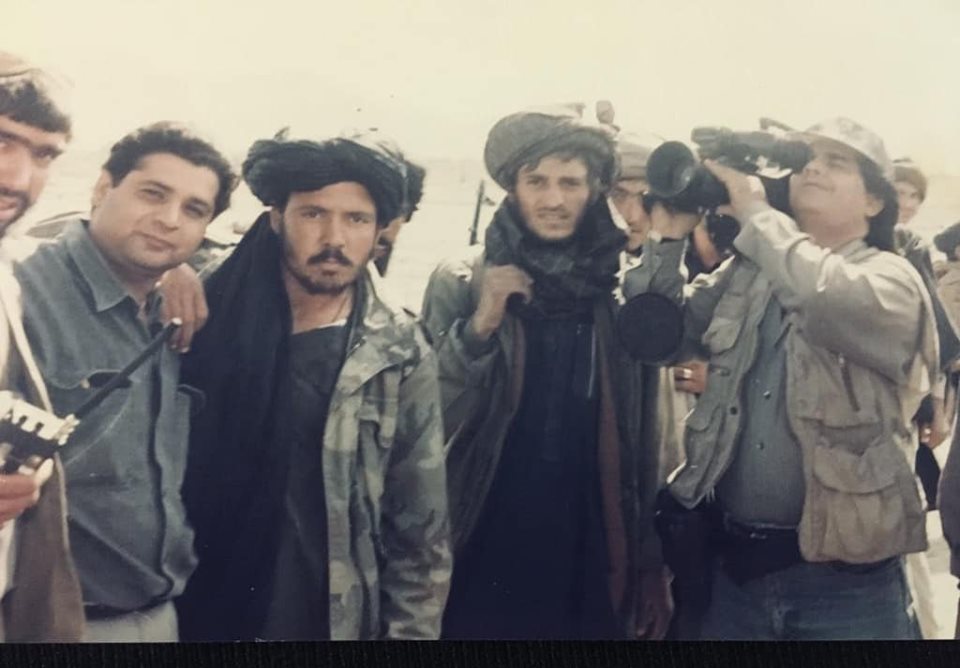By Agha Iqrar Haroon

It was misty evening of October 8, 2001 in Bern, Switzerland when I watched the speech of the then President of United States Bush Junior who was giving a good news to the world that allied forces are (were) winning Afghan War against Taliban on the day he started an unending war.
He was confident enough that allied forces would gain success of Operation Enduring Freedom in 16 to 20 days. Alas Conflict Mismanagement and moving to Middle East (Iraq) by United States played pivotal role in losing war for 19 years which, according to President Bush, could be won in 16 days.
This miscalculation of US former President is actually a message to those who believe that wars are won only with weapons and they forget lesson from history that wars are easy to initiate but difficult to win. I believe Indian Prime Minister Modi should learn from Afghan War before challenging a Nuclear state (Pakistan) for an open war.
The first thought that came in my mind while listening Bush’s speech, was that Pakistan would face the brunt for next many decades because Pakistan would definitely stand with United States as usual and our land would be a free passage for allied troops. Alas I was correct and we had to pay lives of over 80,000 innocent people for joining another Operation Cyclone.
From the very day “Operation Enduring Freedom,” started I was worried about my country and I was sure this war would continue for at least two decades because I as Reporter covered Afghan War during 1995-97 and I had understanding of the terrain and its tyranny for foreign boots.
Authorities of my host organisation Swiss Development Cooperation (SDC) were worried about me and contacted me in my hotel next morning, informing me that all flights to and from Pakistan had been closed down as Pakistan was under No-Fly Zone and my departure from Zurich to Lahore which was scheduled on October 11 had been postponed.

Everybody in Bern was asking me what would be next? Many of them were surprise with my answer because I said them that this war would continue for decades not for years.
According to my understanding with Afghan soil, Afghans are habitual of fighting with each other but they are best united once their land is under attack of foreign troops. I have seen Human Intelligence Networking of Afghans while working as Reporter in Afghanistan and I understand their traits of playing hide and seek with regular armies. Their (Afghans) behaviors are similar of desert scorpions who have quality of disappearing in sand after striking their victims and reappear again before victim is fully recovered from their first strike.
US-Taliban war cost over three trillion dollars to US tax payers, over 3 billion dollars to Pakistan’s economy, over 16,000 lives of Afghans and over 80,000 lives of Pakistanis. Number of detainees in Guantanamo Bay is still unknown. War is yet not over although a truce has been signed on Saturday February 29, 2020 between Afghan Taliban and US authorities.
The peace agreement was signed by the US Special Representative for Afghanistan Reconciliation Zalmay Khalilzad and the Afghan Taliban Deputy Leader Mullah Abdul Ghani Baradar in Doha, Qatar.
One should remember that Mullah Abdul Ghani Baradar was captured by Pakistani authorities (as he was on US Terrorists list) in February 2010 and Pakistani authorities did not hand him over to US forces despite tremendous pressure from United States. He was released from jail on 24 October 2018.
Today, he inked this historic document in the presence of Amir of the State of Qatar His Highness Sheikh Tamim bin Hamad Al Thani, the US Secretary of State Mike Pompeo, a 31-member Taliban delegation, foreign ministers from seven countries including Shah Mahmood Qureshi of Pakistan, and representatives from 50 countries.
In last 19 years, US allied forces and US Presidents (Bush Junior, Obama and even Trump) released countless statements claiming that US had won the war but today’s ceremony has testified that war has never been won in Afghanistan.
In last 19 years, apparently, US administration tried several times to marginalise importance of Pakistan in Afghan issue and tried to pitch India as Stakeholder in Afghanistan but all went to drain and today Trump Administration loudly and clearly accepted unseen and seen, overt and covert role of Pakistan to bargain Peace in Afghanistan. Russia, United States, Qatar and China have accepted that Peace in Afghanistan was, is and will not possible without the proactive contribution of Pakistan.
However, Pakistan never stopped to find peaceful solution for Afghan crises and today’s document is an outcome of long and sustained initiative of Chief of Pakistan Army COAS Gen Qamar Bajwa and chief of Inter Service Intelligence (ISI) Lieutenant General Faiz Hameed, Zalmay Khalilzad and Amir of the State of Qatar His Highness Sheikh Tamim bin Hamad Al Thani. One should also remember role of former COAS Gen Raheel Sharif and contribution of former National Security Advisor Lt (retd) Gen Nasser Khan Janjua who despite of turbulent relationship with Kabul kept pushing US and Afghan Government for talks.
Although document has been signed but it is a fragile document and conditional with its legitimacy with non-violence and complete truce from both the parties. There are many factors including Indian’s unhappiness over Peace Deal can again mess up with situation in Afghanistan. One should remember how did India frustrate Peace Talks scheduled to be held in Murree Hills when news of death of Mullah Omar was released by Afghan government on July 29, 2015—the day when delegation of Afghan Taliban was in Murree for talks in bid to closure of conflict in Afghanistan. This move of Afghan government frustrated China and Pakistan and sources in Afghan government claimed that Indian lobby sitting in NDS was behind releasing this news to frustrate Peace Talks.
It looks rather biased to blame India for frustrating the situation without defining India’s motives in Afghanistan and the region on the whole. Why should India try to halt Peace in Afghanistan? There is a reason for this.
India has been capitalizing only on Northern Alliance (Abdullah Abdullah) in past and had closely been working with Kabul government in last one decade to destabilise Pakistan. A Pakistan Friendly government in Kabul does not suit New Delhi. Now what can be the strategy of India if it wishes to sabotage the deal?
I do feel that India working in close cooperation with NDS can stage a false flag operation at an appropriate time. India is annoyed that Taliban who have a soft corner for Pakistan are again in driving seat and now they are Legitimate Stakeholder in Afghanistan and US, China and Russia have understood that India has no influence over Taliban but Pakistan has.
Zamir Kabulov is Special Envoy for Afghanistan for Russian President Vladimir Putin and is serving in the region since Soviet era. In his interview to Indian Newspaper, he categorically said that Pakistan has (had) Partner Role (In Afghan Peace Talks) along with China, United States and Russia while India is not onboard because he has no influence over Taliban.
In same interview with Jyoti Malhotra and Nikhil Hajirnis of “The Print”, Zamir Kabulov appreciated US envoy on Afghanistan Zalmay Khalilzad, Taliban and Pakistan for working efficiently for ending violence inside Afghanistan and a gradual US withdrawal from Afghanistan.
It is pertinent to mention that Indian Foreign Secretary Harsh Vardhan Shringla landed to Kabul on Friday for his meetings with almost everybody who had been kept away from US-Taliban Deal including former Afghan president Hamid Karzai, President Ashraf Ghani, Chief Executive Abdullah Abdullah, Vice President-elect Amrullah Saleh, National Security Adviser Hamdullah Mohib and acting Foreign Minister of Afghanistan Haroon Chakhansuri.
India is still in a position to suggest Afghan Government to avoid, delay or frustrate second phase of Peace Deal which is dialogue among Afghan leadership.
India is not the only risk for Afghan Peace rather Intra Afghan difficulties and power struggle in Afghanistan are greater challenges.
One should remember that Afghan factions after the withdrawal of Soviet troops fought with each other for poppy power and left more damage to country than done by Soviet War. These factions held peace talks and took oath on Holly Quran not to attack with each other but war never stopped till Taliban rose on the scene in early 1995.
History has once again provided a chance to Afghans to sit and resolve their differences through dialogue. A failure to grab the opportunity is not an option. If Afghan leaders do not settle their differences at this important juncture, people will blame only them.
